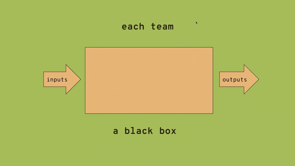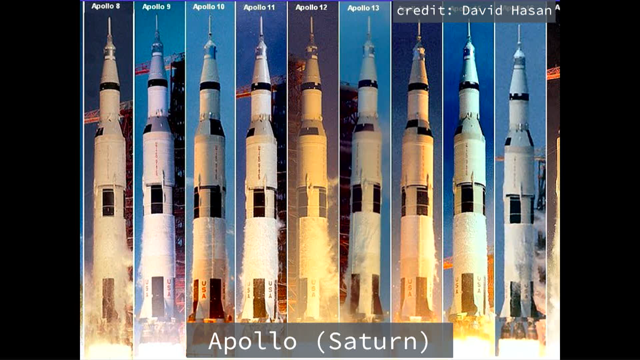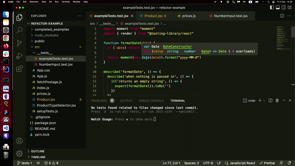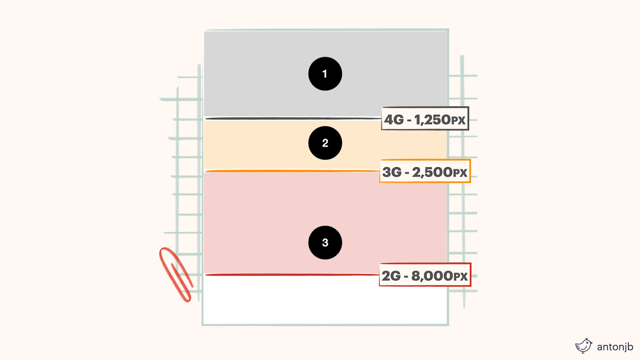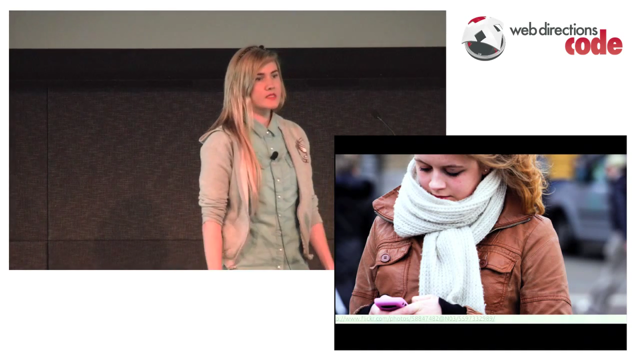Importance of a healthy communication culture

(bright music) - All right.
Hi everybody, my name is Carmel Hinks, and, yeah, I'm a software engineer at Atlassian, who is here to speak to you about the importance of a healthy communication culture.
So, just to give you a run-through of what we'll be covering, we're gonna start off with why I'm actually here, and then we'll move on to speak about four stages of communication.
We'll then break those stages down and then finish up by bringing them back together. So to start off with why I'm here, but, before we get too far into everything, I kinda wanna open with a bit of a disclaimer. I'm not a psychologist.
I'm not a culture professional, I'm not even a member of a management team. I am a software engineer.
And that might lead you to wonder why I'm actually here giving this talk.
But in order to answer that question, I need to tell you a little bit about myself. So, I started working for Atlassian almost three years ago. And during those three years, people have always asked me, why I enjoyed working at Atlassian? And what was interesting is that, as the years have gone by, my answer has changed. In the beginning, which I was an intern, I would just list the perks.
You know, I could bring my dog to work, the food was free, everything was awesome.
But then I moved back to Perth and I started working remotely for one year and suddenly all of those perks were gone.
But for some reason I still enjoyed working at Atlassian. So I tried again.
Then I started to tell people it was because of all the awesome cool stuff I got to do all the time.
But then I picked up a tech-dec task which went on for quite some time and it was fairly mundane. But, for some reason I still enjoyed working for Atlassian. And so I took a bit of time to think about it a bit more deeply.
And what I found was that over the years, I had always felt valued, heard and respected. And then it became clear to me that that wasn't a given. Especially for somebody as early on in their career that I was.
And so I started to get thinking about why that actually was and for me, I found that it was very largely due to the communication culture that we had within Atlassian. And it turns out, I'm not the only person who feels this way.
We recently did a survey and found that 96% of the 609 Atlassians who responded, said that Atlassian has great communication. So they're obviously doing something right. But what is the communication like at Atlassian? Well, if I were to describe it in three words, I would say that it is open, inclusive, and respectful. And to be honest, that kind of makes sense. You saw our valleys before with Dom, we've got things such as open company, no bullshit, and play as a team.
But it's one thing to say that you have values and it's another thing entirely to apply them and so I started to get thinking what my colleagues were doing that was driving this communication culture that I was seeing, and as you probably guessed, I didn't find just one silver bullet.
But I saw many little things that all added up. But I did notice a reoccurring pattern in how my colleagues were communicating with me, and that pattern kind of boiled down into four stages of communication, and those are the stages that I'm here to share with you today.
So I'll be speaking about motive, which is to think about why you want to say something. Express, which is to say that something, listen, which is to allow somebody else to contribute, and then acknowledge, which is to allow, or take some time to let the person that you've been listening to know that they've been understood.
And it is worth not-- oh, sorry, and the stages work within a cycle. And it is worth noting that I'm not saying these are the only stages of communication in the world. Quick Google search tells me there's anywhere from three to nine stages of communication and they're all completely different depending on who you ask.
I'm also not saying that these are the four stages of communication. These are simply four stages that I believe Atlassian frequently execute in a way that has a very large impact on the overall communication culture.
And I've found that they've worked for me.
Everything I'm going to be sharing with you today, I've gotten wrong.
And to be honest, I will continue to get wrong. But, I've found that applying these stages have helped me to become a more effective communicator, and as a result, a better software engineer. So, without further ado, we'll move on to break down our four stages of communication. Starting off with motive.
Have you ever had a conversation with somebody who's made a point, but via the longest possible path? Or maybe just said a lot of words, but didn't end up making a point at all? Well, I was finding that I was experiencing this time and time again.
And that's because I was the problem.
And this first became clear to me when I was a graduate and I was running my first cross-team meeting. So I brought all that different people that we needed and we sat down and I started explaining the problems we were having and why they were problems and why we needed to find solutions.
But after about five minutes of me talking, one of the team leads, very politely, turned to me and asked, "what is the point of this meeting?" And I remember feeling completely taken aback because when I really thought about it, I didn't know. I just knew that we had some problems and I needed to find solutions, but how we would get from A to B, I thought we could just figure that out as we go. And obviously this particular issue can be partly mitigated by having an agenda, and a clear set of outcomes. But for me, there was a much more fundamental issue at play and that was that I had a tendency to give out a lot of noise and hope that my listeners were able to pick up on my signal.
And this issue applied in many, many more scenarios than just meetings.
And it meant that in my day-to-day communication, I would do things such as, mention points that weren't really related to the discussion.
I would provide way too much context when I was asking for help, and I would start answering people's questions before I even had the solution ready.
And I noticed my listeners would often become confused because they weren't sure what point I was trying to make. They would feel misled because I would emit some noise, and they would mistake that as my signal.
And as much as they were too polite to admit it, I noticed I'm becoming impatient.
And so I started to get thinking about how I could do something about this and I took a look at why I was saying all this extra stuff. And what I found was that I had a very very strong tendency to over-communicate because I was trying to sound smart.
I often found myself intimidated when I was speaking to people within Atlassian, and so I would provide that extra context when I was asking for help because I was making excuses for why I didn't know something.
Or I would start answering questions before I had the solutions ready, because I wanted to impress them with my fast answers. But so, I decided that this wasn't the right way, and so I looked to those around me to see how my colleagues were handling this problem because nobody else seemed to do what I was doing. And what I noticed was that, when they would communicate with me, they would communicate with a very clear intent to solve a problem.
They wouldn't say things to draw attention to how much they knew or to make excuses for why they didn't know something, certainly not to put other people down.
They would communicate to solve a problem.
And so I figured I should try to do this myself. And in order to do that, I started to take some time to think about why I was trying to say what I was about to say and if I realise that it wasn't going to be constructive, then I wouldn't say it at all.
And I use the term constructive fairly loosely here, but I just mean that when I'm thinking about why I'm trying to say what I'm about to say first, it helped me catch myself before I said things that were irrelevant or un-constructively negative.
And this brings us to the definition of our first stage of communication, which is motive.
To understand why you want to say what you're about to say before you say it. So moving onto speak about express, have you ever had a question but you didn't feel comfortable asking it? Or perhaps had an idea that you didn't share? Or even had some constructive feedback but you held back from saying anything? Once again, this was something that I was experiencing time and time again. And for me that's because I've actually always had a lot of problems with my confidence. And to be honest, that got a lot worse when I joined Atlassian, because I was suddenly surrounded by the smartest people I had ever met, and I was expected to operate on their level. And of course, when I joined, I was told repetitively, this is a safe place, and there's no such thing as a stupid question. But I found that really, really hard to internalise. And that meant that I would see questions that I knew the answers to but just assumed that I'd obviously misunderstood. I would automatically accept that I would not understand the content in a meeting before it even started, switch off, and not contribute. And when I encountered things that I didn't know, I would literally get up from my desk, walk to the bathroom, and Google them on my phone so that nobody would see the stupid searches on my monitor screen.
(chuckles) And that meant that I wasn't able to have the impact that I wanted to make.
I would miss opportunities to grow and become a better developer.
And to be honest, I was just super stressed all the time because I was permanently convinced that they would inevitably figure out how crap I really was and fire me.
Anyway, this is what is known as self-sabotage, which is, any behaviour, thought, emotion or action that holds you back from getting what you consciously want. And as you can imagine, that's not particularly conducive to a good state of mind or a successful career, and so I started to really think about whether or not my fears were even valid.
And during that time, I was sitting in a meeting. And this maybe with one of the smartest guys ever met. He's a very very senior engineer, and somebody turned to him and they asked him a question. And he sort of thought for a little bit, and then he just said, "yeah, I don't know." And then the meeting just continued.
And that was huge for me, because I suddenly realised, oh my God, we don't need to know everything all the time, and it's okay to admit that you've got no idea. And upon having that realisation, I started to see it everywhere.
I saw senior managers interject to ask what acronyms meant. Or I would see people frequently making suggestions that would get turned down, and nobody, myself included, would think anything less of them.
Basically, it occurred to me that all of these people didn't seem to be afraid to say what they needed to say. And having them do so made me realise oh my God, this is safe place.
And I could ask the questions that I needed to ask and have the impact that I want to make.
But for me to be able to do that myself, I needed to step out of my comfort zone, and in order to do that, I really needed to start defaulting to assuming that the people around me had the best intentions. And that they weren't going to judge me if I needed to ask a question or if I made a mistake. And I felt that I was able to do that because I thought I was in an environment that enabled me to do so.
And this brings us to the definition of our second stage of communication, which is express.
To openly say what you want to say, regardless of your position, background or seniority. So moving on to listen; I don't think I really need to sell the importance of listening to you, I mean, you're all voluntarily attending a conference to listen to people speak all day, so I think you get the idea of how this can be valuable. And some very smart people have noted the importance of listening, such as someone you may have heard of, the Dalai Lama, who said that, "when you talk, you are only repeating what you already know.
But if you listen, you may learn something new." And so I think we all agree that listening is super awesome and we should do it all the time, but sometimes that can be hard, and for me, I found that to particularly be the case when I was trying to be efficient.
And that meant that I would often consciously decide that I was just too busy to listen.
And as a result, I found myself becoming reluctant to spend time discussing alternatives to solutions that I had suggested.
I would begin to feel frustrated with feedback because I didn't think we had time to address it. And I would become abrupt or impatient because I just wanted things to move along. And this all became particularly clear to me when I was fairly recently running a kickoff meeting for a project that had a relatively tight deadline. And prior to that meeting, I spent a bunch of time thinking about the various different things we would have to do in order to hit our milestones.
And so going into the meeting, I didn't want to spend another 30 minutes going over things that I had already thought about. But we did.
We spent that 30 minutes and people started to ask me questions that I hadn't thought to ask, and raise points that I hadn't thought to consider. And during that time it became very clear to me that I had nearly missed out on a much better solution that made our whole thing faster to implement anyway. I had almost missed out on opportunities to learn things that helped me to do my job better further down the line, and I actually received feedback from somebody saying that in that meeting they did not feel heard.
Because as much as I let that 30 minutes continue, my body language made it pretty clear I didn't want to be there.
And so, I decided to take a look at why I was listening in the first place.
I said I didn't want those 30 minutes to go ahead but I let them do so.
And why was that? Well, I found that I was listening because I thought I had to.
It's the polite thing to do, so when you're finished talking, you should let somebody else say some words. (chuckles) But as Simon Sinek said, "there is a difference between listening and waiting for your turn to speak." So it turns out I wasn't really listening at all. So once again, I looked to those around me to see how they were handling this.
Particularly some of our more senior managers who I really respected, because they were dealing with time-bound problems all the time but I just told you I always felt heard. So, during that time I noticed that they weren't listening because they thought they had to, they were listening to understand and to gain new perspectives.
And that meant that I would see them be very patient, and listen to somebody entirely, even though I knew they didn't agree.
They would actively include people in meetings who had been quiet to make sure that their voices had been heard.
And if you said that you needed to talk about something, they would literally, they would make room in their calendar for you if it was full.
And that meant that we all knew that we had a legitimate say in what was being done and we could work as a team, rather than one person coming in and telling us what to do from the top down. So I decided to try to do this myself, which was, to start treating listening as an opportunity to learn, not as a detractor from efficiency.
And this brings us to the definition of our third stage of communication, which is listen.
To allow someone else - regardless of their position, background or seniority - to meaningfully contribute to a discussion. You might notice this somewhat reflects our express definition.
And that's because there's no point in telling someone to express themselves if you're not willing to really listen to them. So move on to speak about our final stage, which is acknowledge.
Have you ever listened to somebody else's complaints, but dismissed them as insignificant, or unimportant? Or maybe disagreed with somebody so much that you didn't even want to credit their argument with a response? Once again, this was something that I unfortunately had started to experience. And this time it was because I thought that I had been there, and done that. I had started to have some experiences in tech that made me think that I knew better.
And in the event that somebody without that experience disagreed with me, I would become abrupt or impatient, because I'd actually feel frustrated.
I would let the emotions that came with that frustration get in the way of my ability to effectively disagree and reason with somebody.
And I found that I was very frequently neglecting to identify any common ground.
And as a result, some of my interactions would escalate to conflict.
I would lose the ability to gain a better understanding of the bigger picture.
And I wasn't finding these new innovative solutions, 'cause I wasn't identifying that common ground. And this time, this was due to overconfidence. I mentioned before that I had a lot of problems with confidence and so I started to compensate by putting on a facade.
But then I started to become a little bit more successful and there were cases where I was legitimately was too sure of myself.
And that meant that these negative interactions were starting to come through.
And so once again, I looked to those around me to see how they were handling this, particularly some of our really super senior engineers. Because as much as they had every right to be completely confident in what they were saying, they would always show humility.
And that meant that I would be very patient, and listen to something that I knew for a fact they disagreed with, but before they started challenging their points, they would take some time to acknowledge what had been said and sometimes why it had been said and what it means to the person who said it. They would call out the things that they agreed with, if any, and build on that where possible.
And I would see people offer support to others, even though I knew the person offering the support had been through a lot worse.
And that meant that they weren't having the negative interactions that I was experiencing because they were treating the people that they disagreed with, with the respect that they deserved, by showing them that they had been understood. And so, I decided to do this myself, and I found that in order to do so, it helped me that when I disagreed with somebody, I started to take little bit of time to think about what had been said and acknowledge what they had said and also sometimes why they had said it and what it meant to them.
And it turns out, this is pretty much the definition of empathy - which is the ability to understand and share the feelings of another.
I thought it was interesting that this definition doesn't even say you need to agree with those feelings.
Just that you're able to understand and share them. And so, this brings us to the definition of our final stage of communication, which is acknowledge.
To show somebody that you have understood what they have said, and when appropriate, why they have said it and what it means to them, even if you disagree.
So we've spoken about our four stages of communication, and I've said that effective application brings forth all sorts of amazing benefits.
So does that mean that the communication within Atlassian is completely perfect all the time? No, of course not, because Atlassian is a company of humans, and humans make mistakes.
But I really really believe that there is this underlying tone in how they communicate with one another that can help guide people like me, onto a more productive path.
But you might be sitting there thinking, okay, well, that's awesome for you, how does that help me? Well, something that I really really wanna stress is that whether you like it or not, you are a role model.
There are people around you looking up to you to figure out what to do next.
Everything that I've spoken about today I have learned by watching those around me, and I don't think they even realise that.
And so on that note I have three things that I think you should do over the course of the next week. The first is, next time you say something, take some time to pause and think about why you want to say that.
Be mindful that what you're about to say next could have a real impact on somebody else's confidence and their ability do to their job.
In your next meeting, include someone who's been quiet. Make sure you're not just taking the opinions of the people with the loudest voices and the most confidence. And finally, next time you talk to somebody, ask a question.
Especially if you're hesitant to do so, because if you're seen to be asking questions or admitting that you don't know something, it lets the people looking up to you know that it's okay to do the same.
Thank you.
(crowd applauds) (upbeat music)
